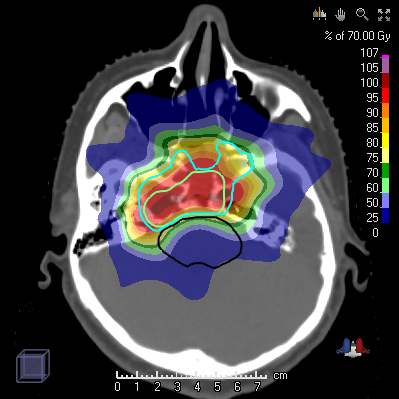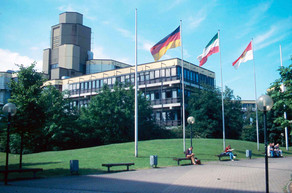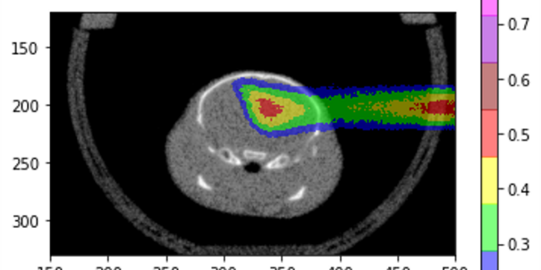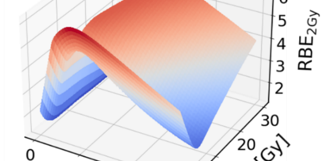Radiotherapy in cancer treatment
Radiotherapy, one of the cornerstones of cancer treatment, uses high-energy radiation to destroy cancer cells in a targeted manner while sparing the surrounding healthy tissue. By precisely targeting the beams to the tumor, radiotherapy aims to destroy malignant tumors, reduce tumor size and prevent recurrence. This therapeutic approach has helped to improve survival rates and quality of life for patients with various types of cancer.
Proton therapy, a special form of radiotherapy, uses protons instead of conventional X-rays. The protons are accelerated at up to 60 percent of the speed of light and directed as a bundled beam precisely onto the tumor tissue. On entering the human body, the beam is slowed down so that the particles release most of their energy directly at the tumor site, thereby damaging the tumor cells. The advantage of proton therapy is that a very high dose of radiation can be deposited in the tumor while the surrounding healthy tissue is spared as much as possible. Using special physical methods, the tumor can be irradiated very precisely along its individual shape (see Fig. 1). This precision makes proton therapy particularly advantageous for the treatment of tumors near critical structures and in pediatric patients, where the lowest possible radiation exposure is of crucial importance.

Main research areas
Our research group is dedicated to the further development of proton therapy with the aim of improving patient outcomes. We focus on three main research topics: accurate dose measurement and prediction, biological radiation effects and novel treatment planning approaches. In the area of dosimetry, we strive to improve the precision of dose delivery based on Monte Carlo simulations and to develop mathematical models for dose prediction in order to optimize therapeutic efficacy. Our studies on the increased biological efficacy of proton radiation compared to conventional photon therapy aim on the one hand to develop prediction models for the variable effective radiation dose. On the other hand, we are investigating the complex interactions at the cellular level in order to gain a better understanding of the underlying mechanisms. In addition, we are pioneering the development of innovative treatment planning methods to increase the precision and adaptability of proton therapy to ensure customized and effective treatments. Through these integrated research efforts, we are committed to raising the standards of proton therapy and achieving better clinical outcomes for patients.



![[Translate to English:] Studierende, Gespräch, Fenster Students are talking in front of a large window](/storages/zentraler_bilderpool/_processed_/7/3/csm_Fensterfront-Gesprache-2_5ccc16e30c.jpg)



